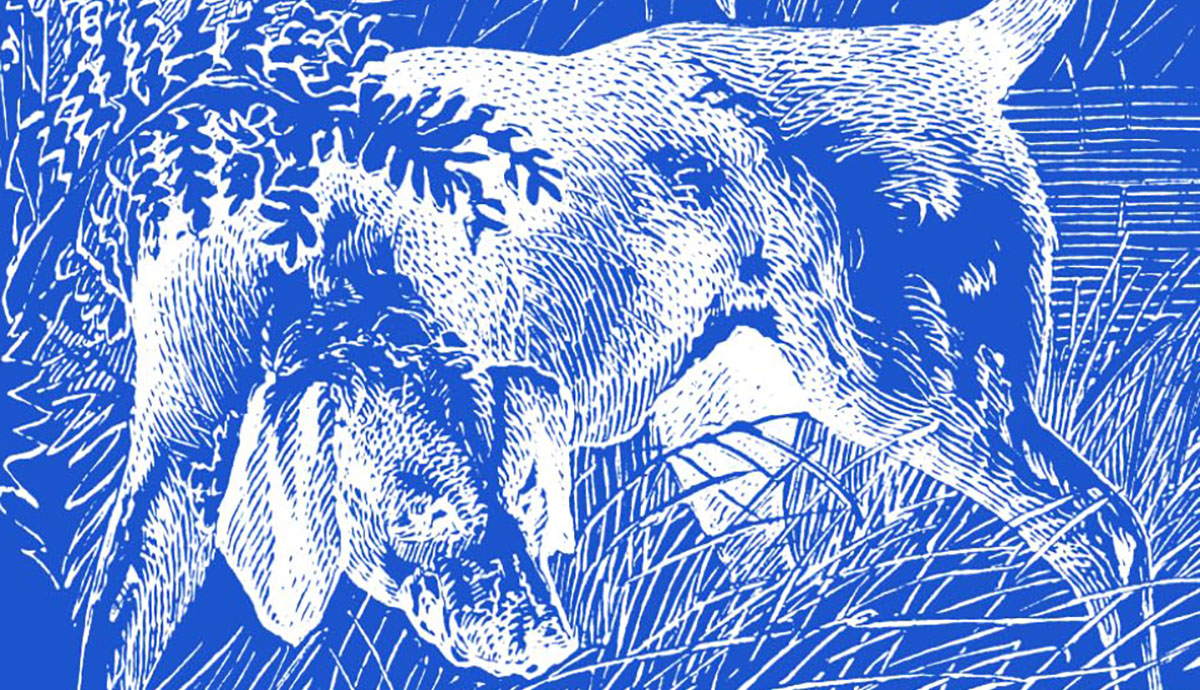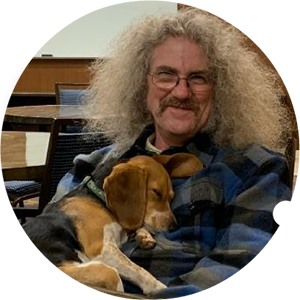So I’m thinking of how I want to run hounds through the woods
in Arkansas, maybe, or Tennessee. And I’m thinking
about a Konso grave in Ethiopia marked by carved wooden effigies
representing the dead and their wives—even the enemies
they have killed. And I’m thinking about class last Thursday,
how I told my students I often need to cut the first stanza or two
of my poems. How the poem is always in search of itself. And how
I need to trim the warm-up, the throat-clearing, as my words hunt
for what they want to be and how. I’m thinking about John.
He’d say the poem starts here, where I find a bobcat dead
in the blowdown, slice it open, and read the remains of a coyote
pup in its entrails. How what has partially passed through us
is where things begin because we can only begin in the middle.
Bailey’s leg dragging behind her with cancer. How her
Springer Spaniel body—caught in mid-step—is moving toward
something beautiful as music of still water in a sassafras hollow,
though I pray that quiet does not come soon. How we are all
partially eaten by air, the moment we gasp for it from the womb.
Words continue to catch in our throat, remind us of that first
reaching, the whining in our whelping, even though we think
ourselves human. So much for the birth of a word in the cavity
of the chest as it comes upon us, unto our tongue, like the hackles
along a dead crow’s throat. And I think of Dan tonight. How I’d
thanked him weeks ago for the Juan Ramón Jiménez book—
only now to find his inscription. The ink dried from the moist birth
canal of his November 3 hand. I want to begin where his loving
words leave off. I want to begin healing in the emptiness
if my neighbor dog Bailey loses her leg. I want to cut off
the first stanza or two, or the third or fourth—all that drags
these words down—to see where the lines really want to go.
Ray used to say we only find the poem as we end it. And that’s
where we should begin the next draft. Who will I be
the next time I am born? Or, maybe, not who but what?
Or in the next poem I am birthed into or through?
Will my earlier lives be cut away from the cosmogonic egg like war
enemies whose effigies lie beside me on the hill, or stay
like dried chunks of yolk blotched here and there with dark spots
of my not-yet-knowing how to give unto the stinging places
of my tongue the push and pull of the whirl? Will I limp,
lugging my words and all their faltering ways? Will I run
the woods’ moonlit swamps with hounds, sniffing the ground,
baying loudly, through Arkansas or Tennessee, or Indiana
corn, or even Ethiopia, marking the paths I take, lifting a leg
over the scent of what I’m chasing and trying to tree,
perhaps longing to become?
This poem was first published in the Summer 2019 issue of the North American Review and appears in What My Hound Dog Is Scenting Through the Sloughgrass Is a Way of Scenting Me. Read Janine Harrison’s review in Open Space.



